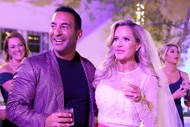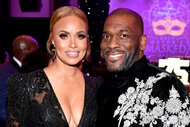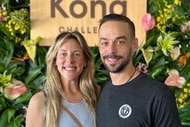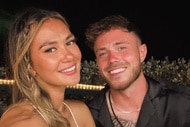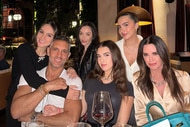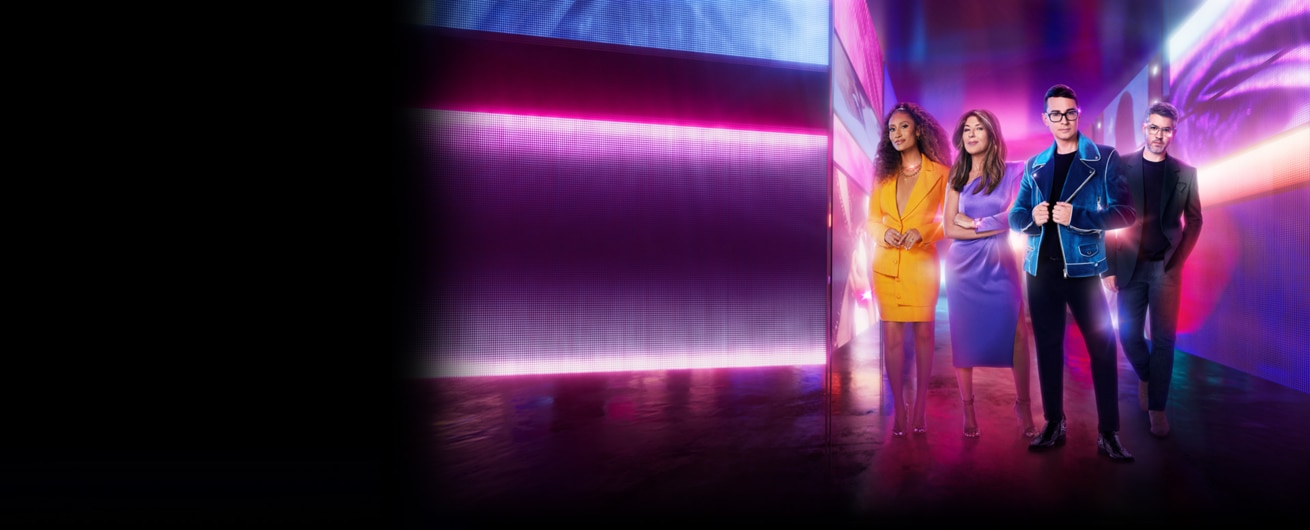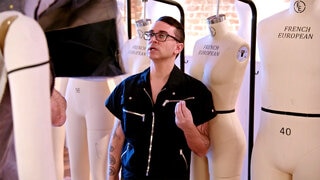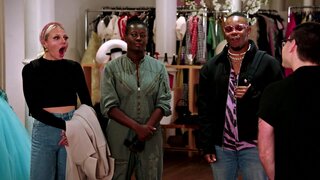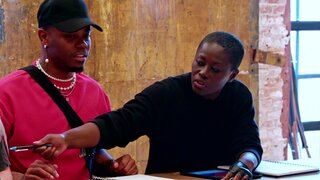
Create a free profile to get unlimited access to exclusive videos, sweepstakes, and more!
Elaine Welteroth Opens up About Police Interrupting the First Kiss at Her Wedding
“In that moment, all of the most terrible things that I’ve seen take place between the police and Black bodies flashed before my eyes, and I could just feel the panic flood my veins," said the Project Runway judge.

Bravo’s Project Runway judge Elaine Welteroth graces the cover of The Knot magazine’s Fall 2020 issue, and although the story was originally intended to feature her May 10 wedding, in which she married Jonathan Singletary on the stoop of their Brooklyn home, it ended up highlighting an even larger conversation about the Black Lives Matter movement. Though she was unsure if she ever wanted to share the story, Elaine opened up about the chilling moment a police van interrupted their ceremony, and how it "really illuminates what it is like to be Black in America every day."
Elaine explained that because the wedding was held in the middle of the coronavirus (COVID-19) pandemic, she took a number of health precautions to keep everyone safe. As a result, her guests were spread throughout the street to watch the ceremony while staying 10 feet apart, which is when they heard sirens.
“Right at the moment when our pastor said, ‘You may kiss the bride,’ his voice was drowned out by the sound of sirens—a police van. It pulls up and starts going in on his [megaphone] and he’s yelling, ‘Clear the streets. Disperse.’ It was aggressive,” she said. “Literally, the police interrupted the moment where we were supposed to kiss — have our first kiss as husband and wife. I just thought, ‘What do we do?’ And I almost forgot to kiss him.”
Elaine eventually shared the moment police interrupted her wedding, which was captured by the Zoom recording, with her Instagram followers in the video, below.
“In that moment, all of the most terrible things that I’ve seen take place between the police and Black bodies flashed before my eyes, and I could just feel the panic flood my veins. And I’m just like, ‘Have I put my community in danger? Have I put myself in danger?’ Have I put myself in danger?’” Elaine recalled. “As a Black person, when you see the police, you don’t think, ‘They’re just here to makes sure everything’s going to be okay.’ You don’t see ‘protect and serve.’ You really see a symbol of danger. You see the red. And it triggers past traumas.”
“I just remember looking at Jonathan and I was like, ‘Okay, he’s smiling. He’s okay,’” said Elaine. “Everyone in the community was cheering us on. And I thought, ‘We’re okay. Lets’ do this. Let’s do this. Let’s do this. Let’s do this anyway. Let’s do this anyway—I’m not giving this to them. We’re not doing anything wrong. And we just kissed, and we held hands, and the music started and we danced into the street.”
Although the wedding proceeded joyously, Elaine explained how traumatic the experience was.
“I will tell you: My mouth was dry, my hands were…my palms…I am sweating just repeating it because it was so traumatizing. I feel like I have PTSD from it. Like, my hands and my palms were sweaty. It was as if what we were doing was an act of defiance. It was like a peaceful demonstration,” she said. “Dancing in that moment and our first dance was a form of peaceful resistance, and I felt like I was being held by the love and support of the community. But I was scared. Jonathan and I smiled, and we were dancing, but he knew and I knew, and we were asking ourselves, ‘What are we doing? Are we okay? Are we okay? Is this all over? Is everything going to end? Is it over? Have we made a huge mistake? Are they calling backup?”
Elaine explained that her friend spoke with the police, adding, “she said they were so aggressive and they never confirmed that they were going to let us go.” Eventually, the van drove away, and the ceremony went on.
“We wanted to do it again, and this time without the cops trying to bust us...interrupt us,” Elaine said. “And it was such a triumphant, liberating, emotional moment that everyone participated in with us. It was like a wedding miracle. It was so special and yet so marked by some of...the deepest traumas that we carry with us every day as Black people. It illuminates this idea of what it’s like to be Black in America in a way that words can’t.”


